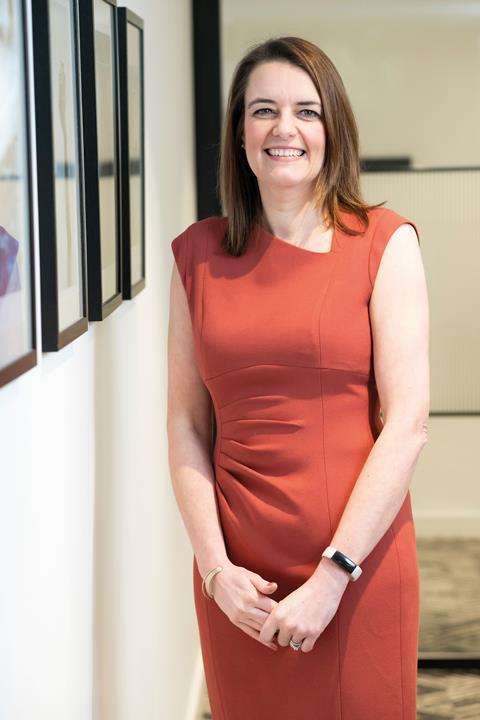CEO, Manchester and London
When I was at school and it came time to think about a career, my mother suggested that working in professional services might be stable. At that time, the lessons of recession in the 1980s were still fresh in her mind. That coincided with her telling me of her time as a legal secretary, so I became fixed on a job in law.

Even though I began my degree wanting to change the world as a human rights lawyer, the Working Time Regulations came into force shortly after I started my training contract. I became immersed in employment law instead. I qualified as a corporate and employment solicitor. But I was so captivated by what was happening in employment law that I never did any corporate work.
I realised as much as a decade ago that the prospect of a career entirely within the traditional law firm structure was not for me. I wanted to have more control and so I left DAC Beachcroft to work as a fee-share consultant at a couple of firms. I was also invited to join the board at one firm as a non-executive director.
Even though alternative business structures were still a new development, what I was doing did not feel like a revolution but a progression. When I met Anna Beaumont in 2019, I realised that we shared a real passion to create a different type of law firm. Our respective backgrounds meant that we also had a wealth of experience in both traditional and fee-share firms. We knew that we could create something of a hybrid, combining the best elements of both.
In January 2020, when we launched Bexley Beaumont, our focus was very much on making a difference for lawyers and clients alike. Fee-share firms were regarded by some people as only offering more flexibility than traditional firms in the sense of working from home – before, of course, home-working became something of a norm.
Instead, we envisaged the kind of structure which would allow lawyers to do the same kind of high-quality work as at traditional firms but with far greater autonomy. From a client’s perspective, it also means that they have access to very experienced lawyers at a lower rate than that quoted by traditional firms because of the cost-effective nature of our business model.
'The prospect of a career entirely within the traditional law firm structure was not for me. I wanted to have more control'
We have grown very carefully, making sure that we do not dilute our essential vision and values. That approach has paid off. We have almost completed our third year and have offices in London, Manchester and Liverpool. We have a team of 39 very experienced and capable partners, many of whom have left much bigger and longer-established firms because they appreciate the very positive difference which we are making.
It has also been heartening to see what we are doing recognised by people outside the firm and our client base. We have made the shortlists both at the British Legal Awards and, more recently, the Legal 500 Northern Powerhouse Awards.
I was one of 27 individuals who applied for one of the five seats available to represent women lawyers on the Law Society Council. The decision to stand was, for me, a matter of principle and one on which I felt – again – that I could make a difference. To be one of the five candidates elected to the Council really was a tremendous honour. I fully intend to be part of the process of developing strategies and policies in line with the interests and needs of members as well as encouraging, inspiring and supporting the profession’s next generation of leaders. Anyone can see that the legal sector is changing. It is important that the process is driven from within by a Council that is part of the change rather than reacting to it.
When I became a lawyer, roughly 60% of those entering the legal profession were female. The percentage of female partners was significantly lower. Reviewing the SRA’s diversity statistics more than two decades later, I found that women make up the majority of lawyers in law firms (52%). However, still only 35% of partners are female.
As for the effort to make law even more representative, I felt that my experience could be of help. My career has taken a different path to some of my peers. I have gone from working at an international law firm to much smaller organisations – both as an employee and a non-executive director – to launching my own successful, non-traditional law firm. The insight which I have gained can add value on a number of levels.































No comments yet